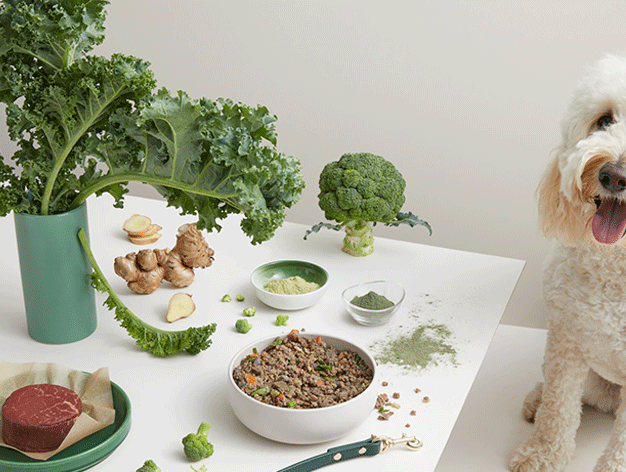Six regular health checks you should do on your dog 🐶
Prevention is better than cure. We all want our dogs to stay happy and healthy.
By implementing some basic checks as part of our routine, you will become familiar with your pooch and be more likely to notice when something needs attention.
1. Skin & coat
Check weekly
- Grooming time is the perfect opportunity to check in on the condition of your dog’s skin and coat. Regular brushing will keep your dog’s hair healthy and shiny by removing dirt and spreading the natural oils.
- Keep eye out for any lumps and bumps. If your dog has any abrasions make sure they are healing and check for redness and irritation.
- Also watch out for new bald patches – some breeds are naturally hairless in certain areas keep an eye out for changes.
- The colour of your dog’s fur can alter as they age but it can also be the result of medications, sunlight exposure or a sign of skin disease.
- It is essential that you check for ticks and fleas and ensure they are up to date with their parasite protection.
2. Mouth & teeth
Check approximately 3 x week
- Just like humans, dental health is important for dogs – you should brush your dog’s teeth three times a week to prevent plaque accumulating. If you really can’t face the idea of brushing, then make sure you give them a chewing aid.
- When checking their mouth, be aware that a dog’s breath should be fresh, gums should be pink and free of bumps and ulcers. Your dog’s teeth should also be white – not yellow, brown, or broken. Keep an eye out for foreign objects or fur stuck between their teeth.
- The outside of your dog’s jaw should also be symmetrical and bump free.
3. Lymph nodes
Check monthly
- The best way to check for any swollen lymph nodes is to give dog a big hug and a scratch. This will give you the chance to check under their jaw and behind their knees.
- Lymph nodes should be very small and barely detectable unless you have a very large dog. If you notice they have become enlarged, then you should book an appointment with your vet as this can be a sign of infection.
4. Eyes, ears & nose
Check monthly
- There’s nothing like the unconditional love in dog’s eyes – have a good look into them and check they are clear and bright. The whites should be white, rather than yellow or red and any sign of cloudiness or discharge can indicate a problem. Both pupils should be the same size too. If you notice any squinting or swelling you may need to take a trip to the vet.
- Take note of any abrasions or sores on the ear flaps. Check for redness, excess wax, or discharge. If your dog is consistently tilting its head to one side or shows discomfort when you are checking this can be a sign of an ear infection. A funny smell can also be a sign of ear mites.
- A runny, dry, or cracked nose is a sign your dog is unwell. Also keep an eye out for changes in colour – most dogs have black noses.
5. Paws
Check monthly
- A careful inspection of your dog’s paws is important to ensure there are no cracks or redness on their pads or between their toes.
- Keep an eye out for prickles – often associated with limping.
- Keep nails well-trimmed as they can become uncomfortable if they get too long.
- If you notice a bad odour, it can be a cause of an ingrown toenail which has become infected. Just as they are in humans, these are very painful!

6. Poop
As often as possible
- Take note of any changes in dog’s poo, especially if making modifications to their diet – any sudden changes that can’t be explained can be a sign dog is sick and you need to check in with the vet.
- Their poo should be soft enough to go without a struggle, but it shouldn’t leave residue and should be easy to pick up. It should be between light brown and dark brown.
- Be aware of what the difference between healthy and unhealthy poo is.
When to see your vet
- If you notice anything out of the ordinary, make an appointment.
- Healthy dogs should visit the vet every 6 months for a wellness check, blood tests, vaccines, and parasite care – 12 months is considered too long.
- Dogs under 12 months are growing quickly – their care plans such as worming tick and flea prevention need to be adjusted as they develop. 3 monthly visits are recommended at this age to ensure everything is on track.
- Senior dogs may also need more regular visits to monitor any pain or quality of life issues.
A healthy diet ensures a happy dog
Get 20% off your first Lyka Pet Food delivery
Lyka pet foods use high-quality protein in their recipes, using only free-range chicken and eggs and grass-fed beef and lamb. Lyka serves up a meal plan and portion sizes just right for your unique dog.
This article was first posted by Lyka pet food with the permission of Lyka pet food. Read article here.
Subscribe to our newsletter
Online form provided by Vision6





